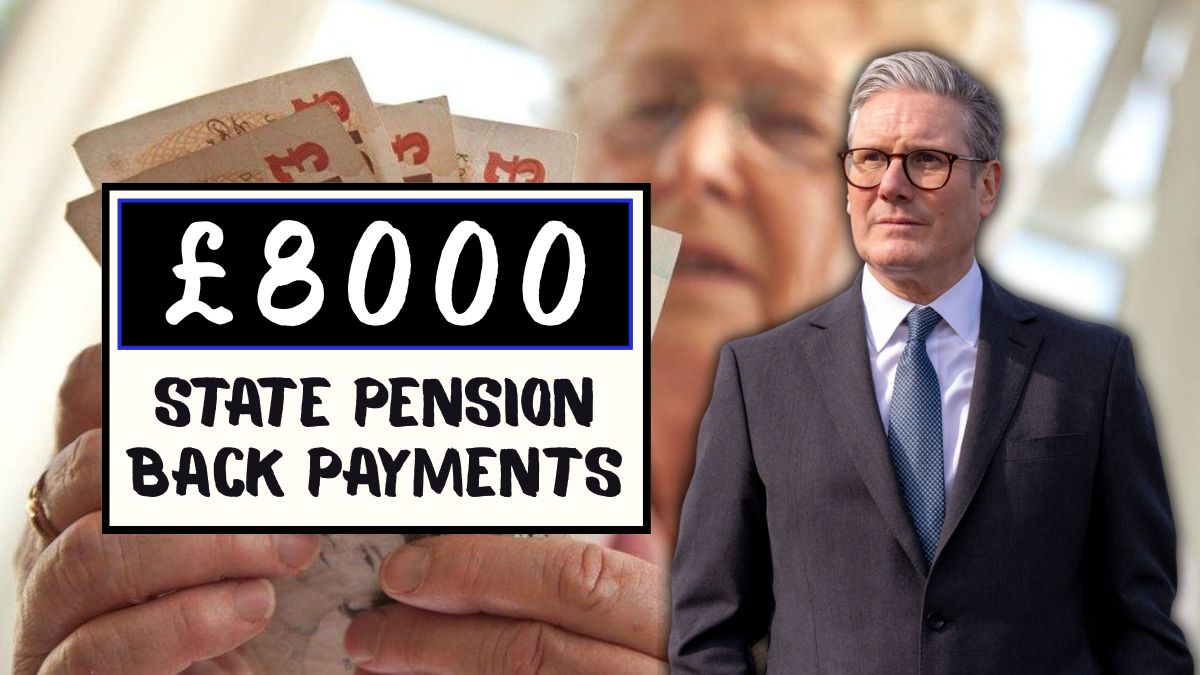Many women across the UK may not realise that they could be owed thousands of pounds in back payments from their State Pension. For some, the amount could reach as high as £8,000, depending on personal circumstances and contribution history.
The opportunity applies mainly to women in their 60s and 70s, particularly those born before 6 April 1953. The government has identified historical errors in how pensions were calculated, leaving many women short-changed over several years.
Understanding eligibility, checking your National Insurance record, and submitting a formal claim could make a life-changing difference.
Why Back Payments Are Being Offered
The issue stems from longstanding discrepancies in the State Pension system before reforms were introduced in 2016. For decades, many women received lower pension payments than men due to unequal crediting of National Insurance (NI) contributions.
Women who took time off work for childcare or family care often had gaps in their contribution records. When the new State Pension was introduced, it simplified the system but didn’t automatically correct past underpayments.
After reviewing multiple cases, the government admitted these inequalities and now allows affected women to claim back the money owed.
Who Is Eligible for Pension Back Payments?
Eligibility for these pension back payments depends mainly on age, gender, and contribution record.
You are most likely to qualify if you:
- Were born before 6 April 1953.
- Have gaps in your National Insurance record.
- Spent time as a caregiver or were out of paid employment.
- Were married, divorced, or widowed during your working years.
Even if you’re already receiving the new State Pension, you may still be owed money for periods before 2016 when underpayments occurred.
How to Check Your Pension Record
Before submitting a claim, it’s vital to review your pension statement.
You can:
- Check online through the UK government’s official portal.
- Request a paper statement from the Department for Work and Pensions (DWP).
Look for any missing NI contributions or incorrectly recorded years. Even one missing year can reduce your entitlement significantly.
If discrepancies appear, contact the National Insurance helpline to correct them before applying for back payments.
How Much Could You Receive?
The exact amount owed varies by individual. On average, women who qualify receive between £1,000 and £8,000.
The calculation depends on:
- The number of years underpaid.
- Whether you were part of the old Basic State Pension or transitioned into the new system.
- Any missed years of NI credits for childcare or caring responsibilities.
The DWP’s online calculator can help estimate your potential entitlement before you submit an application.
How to Claim Pension Back Payments
Applying for a back payment is a straightforward process managed by the Department for Work and Pensions (DWP).
You can apply:
- Online through the official government website.
- By phone through the State Pension helpline.
- By post, using the official claim form.
You will need to provide:
- Your National Insurance number.
- Proof of identity and date of birth.
- Employment or caregiving records (if applicable).
- Details of your bank account for the payment transfer.
Processing times vary, but most cases are completed within 6 to 10 weeks.
Common Questions Women Ask
Many women remain unsure about whether they qualify or how to begin. Here are the most common queries:
Can I claim if I already get the new State Pension?
Yes, you can. If your earlier contributions were underpaid before 2016, you may still qualify for back payments.
Do I need a financial adviser?
Not necessarily. However, speaking to a pension specialist or charities like Age UK can help ensure your claim is accurate and complete.
Will it affect my other benefits?
No. Back payments are not treated as income for most means-tested benefits, but you should confirm with DWP if you receive income-based support.
How Receiving Back Payments Can Help
Receiving a lump sum of up to £8,000 can dramatically improve retirement security.
For many pensioners, this money can help:
- Pay off debts or credit cards.
- Cover heating and living expenses.
- Fund healthcare, home repairs, or travel.
- Boost savings or emergency funds.
Experts recommend using part of the back payment to stabilise finances and secure long-term comfort.
Understanding Pension Policy Changes
Since 2016, the UK government has restructured the State Pension system to make it fairer. The new pension combines the old Basic State Pension and Additional State Pension into one simpler framework.
However, the reforms did not automatically fix past underpayments, especially those affecting women who:
- Took career breaks for childcare.
- Worked part-time.
- Depended on spousal NI contributions.
The DWP continues to review these historical cases to ensure fairness and transparency.
Practical Tips for Claiming Successfully
If you believe you’re owed pension back pay, take the following steps:
- Gather Documentation: Collect all NI, employment, and caregiving records.
- Use Official Channels: Apply only through gov.uk or verified DWP links.
- Avoid Scams: Beware of private agencies charging fees for free government services.
- Double-Check Your Application: Incomplete or inaccurate forms cause delays.
- Be Patient: Claims can take weeks, but DWP will confirm once processed.
Common Mistakes to Avoid
Applicants often make simple errors that delay their claims. Avoid these pitfalls:
- Submitting incomplete forms.
- Ignoring missing years in NI records.
- Falling for third-party “fast-track” offers (the government does not charge fees).
- Forgetting to include spousal or caregiving details that affect eligibility.
Accuracy and patience are key to securing the full amount owed.
Why It’s Important to Act Quickly
Although there’s no strict deadline for claiming, it’s best to act as soon as possible.
Old employment records, NI statements, and caregiving details may become harder to access over time. Early action ensures fewer delays and increases the likelihood of receiving the full entitlement.
The sooner you file your claim, the faster your payment can be processed — providing much-needed financial relief in retirement.
How Payments Are Issued
Once your claim is approved, payments are usually made as a lump sum directly into your bank account.
In rare cases, DWP may adjust your ongoing monthly pension to reflect the corrected amount. You’ll receive a confirmation letter detailing how the back payment was calculated and when to expect the funds.
Support for Claimants
If you’re unsure where to start, several organisations offer free help:
- Age UK: Provides expert assistance for older people claiming pensions.
- Citizens Advice: Offers free support with paperwork and eligibility checks.
- Independent Financial Advisers: Can review your records and estimate your entitlements.
Using these services can ensure you don’t miss any details or documentation.
FAQs: Pension Back Payments for Women
Q1: Who qualifies for pension back payments?
Women born before 6 April 1953 who had incomplete or underpaid National Insurance contributions are the most likely to qualify.
Q2: How much can I claim?
Payments range from £1,000 to £8,000, depending on your contribution history and pension type.
Q3: How do I apply?
Claims can be submitted online, by phone, or by post through the DWP using your NI number and personal documents.
Q4: Will the payment affect my existing benefits?
No, back payments generally do not affect other benefits or tax calculations.
Q5: How long does it take to receive the money?
Most claims are processed within 6–10 weeks, and payments are made directly to your bank account once approved.















